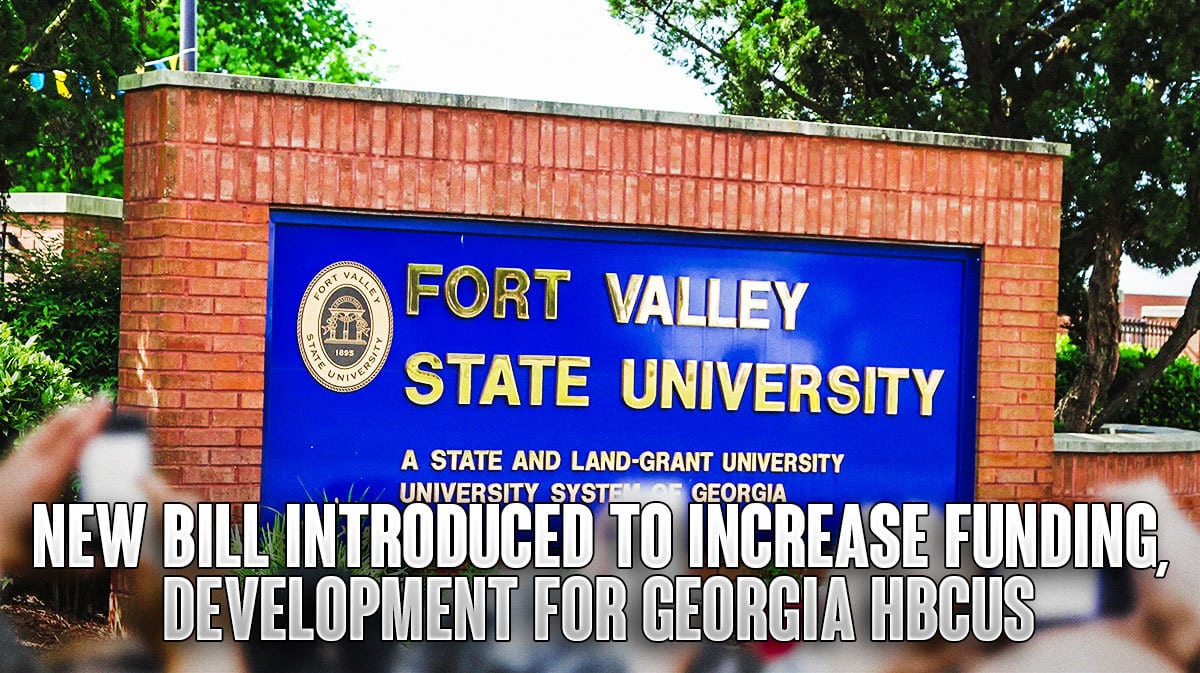A new bill aimed at boosting funding and development for Georgia's ten HBCUs has cleared the state senate and is currently under consideration and debate in the state house, per documentation secured via the Georgia General Assembly. Georgia SB 235, sponsored by state senator Sonya Halpern, aims to create a Historically Black Colleges and Universities (HBCUs) Innovation and Economic Prosperity Planning Districts Commission under the University System of Georgia. SB 235 passed the state senate in a 46-7 vote on February 26th.
The bill proposes establishing a commission with membership and operational guidelines. It outlines the appointment of an executive director, advisory committees, powers, duties, acceptance of external funding, reporting mechanisms, short title, legislative findings, related matters, repeal of conflicting laws, and other purposes.
The bill also includes provisions for Community Improvement Districts, designated as follows: The Albany State University planning district, The Atlanta University Center Consortium planning district, The Fort Valley State University planning district, The Paine College planning district, and The Savannah State University planning district.
The bill follows a series of events related to HBCU sustainability. For instance, Education Secretary Miguel Cardona wrote a letter to Governor Brian Kemp, indicating that Fort Valley State University is owed $603 million from Georgia as an 1890 Land Grant Institution.
Cardona and the Biden Administration have also sent letters to governors of states where land-grant HBCUs are located. These institutions historically received less funding compared to non-HBCU counterparts. Cardona and Agriculture Secretary Thomas Vilsack reached out to governors regarding state-funded HBCUs, including Alabama A&M University, University of Arkansas at Pine Bluff, Florida A&M University, Fort Valley State University (Georgia), Kentucky State University, Southern University and A&M College (Louisiana), University of Maryland Eastern Shore, Alcorn State University (Mississippi), Lincoln University (Missouri), Langston University (Oklahoma), South Carolina State University, Tennessee State University, Prairie View A&M University (Texas), Virginia State University, and North Carolina A&T State University.
The letter stated, “Fort Valley State University, the 1890 land-grant institution in your state, while producing extraordinary graduates that contribute greatly to the state’s economy and the fabric of our nation, has not been able to advance in ways that are on par with University of Georgia, the original Morrill Act of 1862 land-grant institution in your state, in large part due to unbalanced funding.”
The bill also follows a tour of Georgia's 10 HBCUs conducted by Halpern and Georgia Lieutenant Governor Burt Jones last Fall. During the tour, Halpern and Jones held listening sessions with the presidents, other administrators, and student leaders on campus of the respective institutions.
“I want to thank Sen. Halpern for organizing these tours and meetings,” Jones said in a statement in September. “Learning about the innovative and unique initiatives underway at our HBCUs is critical as we prepare for the 2024 Legislative Session. I look forward to learning how we can partner together to ensure that legislation like the one creating the HBCU Innovation and Economic Prosperity Planning Districts Commission is prioritized during the next session.”
Halpern spoke of the significance of SB 235 in a statement, saying, “HBCUs contribute significantly more to our society than mere academic education. They are vital engines driving economic growth and social advancement, injecting over a billion dollars annually into our economy and facilitating social mobility across communities. Senate Bill 235 creates HBCU Innovation and Economic Prosperity Planning Districts, which will serve as catalysts for diversifying our workforce, driving innovation and economic impact, and anchoring community and economic development around their campuses, with our HBCUs driving those efforts. This legislation is a testament to our commitment to inclusive growth and economic vitality for all.”
After the passage of the bill in the Senate, Jones also said in the statement, “Our HBCUs have a unique opportunity to grow as hubs of economic and workforce development,” said Lieutenant Governor Burt Jones. “We need to provide these universities with the tools and infrastructure necessary to succeed. I want to thank Senator Sonya Halpern for her work in helping better our HBCUs throughout Georgia. By strengthening our HBCUs, we can continue to keep Georgia's business climate thriving.”

Opposition To SB 235
There was some opposition to the legislation, such as Senator David Lucas (D) and Senator Freddie Powell Sims (D). They expressed various concerns with the bill and its specific implementation in its current form in quotes obtained by the Atlanta Voice.
“It (Senate Bill 235) might be good for the private HBCUs,” Lucas said. “But you’re setting up districts that folks will determine what might happen and then they go to the President if they don’t like what’s being planned. And if you want to do something, go to the Board of Regents and ask that they make the changes at those particular institutions that would increase the student body. And that would spur economic development.”
Sims added, “As this bill is written, SB 235 will empower a very loosely defined and appointed commission to institute a complete power grab away from the Board of Regents with little to no oversight or accountability for this legislative body, nor oversight, or accountability from the Board of Regents.”
The bill has cleared the Senate and is now with the Higher Education Committee in the state house.



















